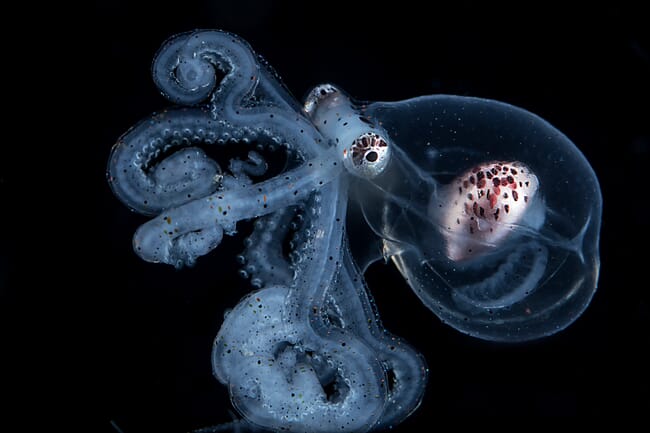
In 2021 the Galician company announced plans to build a land-based facility in Gran Canaria that is capable of producing 3,000 tonnes of the cephalopods each year. However, animal rights and marine conservation groups, including The Aquatic Animal Alliance – which leads a coalition of over 110 non-profit organisations and scientists – warns of “serious environmental risks” posed by the Las Palmas project.
According to a statement from the alliance, Nueva Pescanova’s “documentation generates high concerns due to evident lack of information regarding the potential effects on the marine ecosystem surrounding the farm, as well as on the island’s community. The company does not specify the methods and processes to prevent the filtration of potentially dangerous substances into the effluent or the concentration of ammonium, nitrite, nitrate and phosphorus, among other elements that can negatively affect the ecosystem.
“Additionally, the most worrying aspect of the report is the lack of mention of the possible spread of diseases in the context of intensive exploitation. The company states in its documentation that ‘In the case of the octopus, no relevant pathologies are yet known’. However, previous studies have found that octopuses can suffer from up to 20 different pathologies, including Vibrio cholerae, which causes the cholera disease in humans. The company does not specify any of these pathogens that can potentially be transmitted to marine wildlife or humans. Likewise, it omits the risks of using potential treatment against these pathologies, such as antibiotics and antiparasitics, which can contribute to the growing global crisis of antibiotic resistance.”
The alliance adds that “other environmental risks include the possible escape of octopuses from the farm to the surrounding ecosystem, which can generate negative interactions with the local fauna, and the transmission of diseases. This may also affect wild octopus populations, and therefore affect artisanal fishermen in the area, who depend on this species for their livelihood.”
The report sent by the alliance explores in much greater depth all the environmental risks associated with the approval of this construction.
“Due to the substantial evidence we have provided to the government on the negative impacts that this project could have on the surrounding environment, we request that the government reject the environmental permit for the Nueva Pescanova octopus farming operation, given that there is not enough information provided by the company to execute this project,” concludes Catalina Lopez, director of the Aquatic Animal Alliance.




